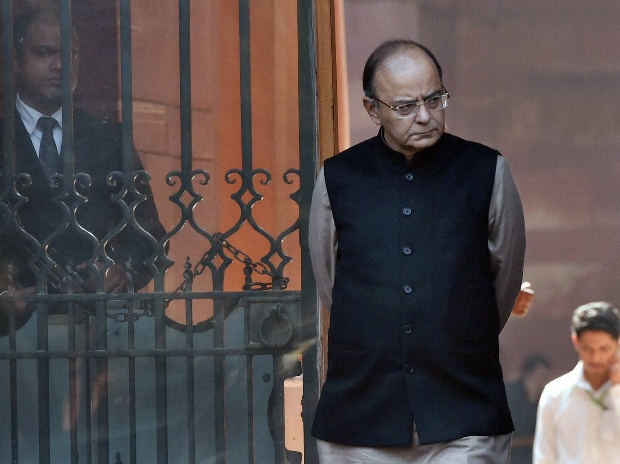Dual control holds up GST's July roll-out
Business Standard
By Dilasha Seth Arup Roychoudhury & Indivjal Dhasmana
January 5, 2017. 01:45 IST
West Bengal finance minister walks out; next meeting on January 16.

An impasse over the division of administrative turf between the Centre and states, higher compensation due to demonetisation and definition of coastal states persisted on Wednesday at a meeting of the goods and services tax (GST) Council, indicating that a roll-out of the new indirect tax regime is difficult not only from April 1, but also from July 1, 2017.
The Council, comprising the Union finance minister, Union minister of state for revenue and representatives of states, would now meet on January 16 to resolve these tricky issues ahead of the Budget session, to start from January 31.
West Bengal Finance Minister Amit Mitra, who has been the most vocal in raising the issue of higher compensation due to demonetisation, walked out of the Council meeting midway.
The administrative control over assesses, known as dual control, has been hanging in balance for quite some time now.
“Dual control is a complex issue. We have not found a solution. The discussion was inconclusive,” Finance Minister Arun Jaitley told reporters after the meeting.
However, to a query, he said that the Council was not deliberately resorting to voting on administrative turf as this would set a precedent. Meanwhile, the Centre and states are trying to find a ‘legally sustainable’ solution to the definition of coastal states. While the Centre wants to take 12 nautical miles beyond coasts as Union Territory and tax any item sold there, coastal states are averse to this.
According to Jaitley, the Constitution states what is not a part of scheduled state is Union Territory.
This issue has been pending in the courts and is currently before the Supreme Court.
States want the right to levy taxes, Jaitley said, adding a constitutional solution to this vexed issue has to be found.
The issue is also sub-judice as it is being heard in the Supreme Court.
Andhra Pradesh Finance Minister Yanamala Ramakrishnudu said Rs 600 crore a year is realised by the state on the sales of bunker to foreign-going vessels and on gas explored in territorial waters.
“As the Union finance minister has already agreed to this claim of the states, it is not correct to deprive the states of the revenues on some legal interpretation, even though the issue is undecided by the Supreme Court,” Ramakrishnudu said.
In its previous meeting last month, the Council had cleared the compensation law, while some states have been asking more revenue as their finances are hit by demonetisation. Mitra said tax collections in the state have also fallen drastically.
According to Jaitley, states have been asked to give their month-wise data on revenues so that the Centre can study them.
Taking a dig at the West Bengal Finance Minister, Jaitley said the states that are better administered saw a rise in revenues. He said Punjab, Haryana and Assam reported higher revenues after demonetisation. These states are either ruled by the Bharatiya Janata Party (BJP) or in coalition with the BJP.
States have also demanded increasing the number of items on which cess is to be levied to compensate them to deal with revenue loss.
“Working overtime, it should be possible to meet the deadline of September. I’m not very optimistic about rolling out GST in June/July. Because it is a new tax and a lot of complexity is involved, it would be better to move in after full preparation. So GST, to my understanding, will be implemented from September,” said Kerala Finance Minister Thomas Isaac.
Jaitley said: “We know the difficulties; we are moving against time.”
Currently, very few state finance ministers talk about meeting the April 1 deadline. Haryana Finance Minister Captain Abhimanyu is an exception.
Meanwhile, telecom, IT, banking, insurance industry wanted centralised registration under GST.
The Council discussed the IGST law, which has 11 chapters. The initial 10 chapters have been approved.